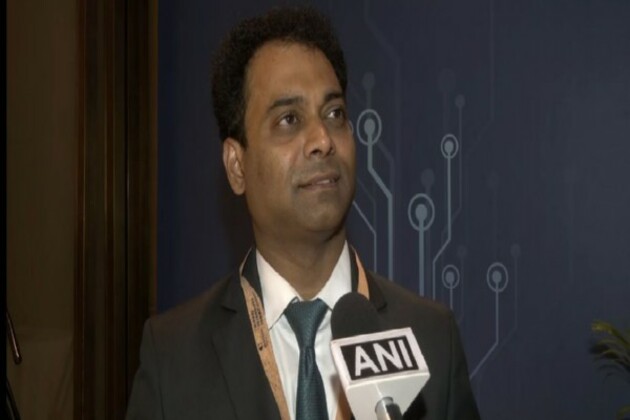Carnegie Global Tech Summit: Experts discuss Data Protection Act; hail digitisation, regulation in India's financial sector
ANI
13 Apr 2025, 00:09 GMT+10

New Delhi [India], April 12 (ANI): The Indian financial sector is highly digitized, with established consent-based data sharing and governance structures in place, experts said on Saturday and noted that rules concerning the Digital Personal Data Protection Act provide a framework towards a more accountable digital ecosystem while also presenting some challenges.
Speaking at the 9th Carnegie Global Tech Summit on Saturday during the session 'India's approach to data governance', they said that consent managers could help manage personal information and age-gating mechanisms are geared towards restricting children's access to harmful content.
Saranya Gopinath, director, government affairs and policy, Razorpay, said it is a matter of great comfort for people that India's financial sector is properly regulated and governed.
'The financial sector in India is not only most digitized or matured ecosystem, it's also deeply regulated. As citizens, we can all take a lot of comfort in the fact that it is deeply governed,' she said.
Asked about the changes the financial sector will face due to the Digital Personal Data Protection Act (DPDPA), she noted that the financial sector is already familiar with concepts like consent and data sharing, and has advanced data structures in place.
Gopinath said substantial thought has been given towards individual rights in the financial sector.
She said banks undergo regular audits and there are protocols for data handling.
'Consent is not an alien term in the financial sector. It is an understood concept,' she said.
Bhuvnesh Kumar, Additional Secretary, Ministry of Electronics and Information Technology, spoke about the provisions of DPDP Act including 'right to be forgotten'.
He laid thrust on the significance of rules regarding the legislation.
Aman Jain, Director of Public Policy at Amazon, said global companies can face challenges in implementing the provisions of DPDPA regarding data storage and deletion.
Jain highlighted the challenge of identifying the data principal in cases where a single device is used by multiple individuals, such as a household. In such cases, it is difficult to determine who the data principal is and how their rights should be protected.
'When the Act came out, a lot of us in the industry said, Look, this is progressive. This is different. You know, when the details came out and the rules came out, suddenly, the government announced that there'll be a committee that will decide on what data subjects can be or topics can be under data localization,' he said.
He said the draft rules require e-commerce companies to automatically delete data of user after three years after it is not required.
'Let's say you've gone on Amazon, you bought something today, and come 2027 we are required to delete your data if you've been inactive in that period. Now, practically, what ends up happening is we have enough use cases of folks coming back because they want to see if the warranty still exists for a TV they bought five years back, right? Or they just want to know the model you don't remember it you bought something,' he said.
'I had a thing very recently, where I wanted to check what book I bought in 2015? And I need to be able to go back. And it doesn't mean that I need to, you know, we'd love you to shop every single day. But if you were inactive for a little while and then you were going back, then you it just creates for bad experience, right? So, so that's, I think, one so practical example,' he added.
Sunil Abraham, Public Policy Director for Data Economy and Emerging Tech at Meta India, said the decision to leave the regulations technologically neutral and future-proof is a step in the right direction. (ANI)
 Share
Share
 Tweet
Tweet
 Share
Share
 Flip
Flip
 Email
Email
Watch latest videos
Subscribe and Follow
Get a daily dose of Business Sun news through our daily email, its complimentary and keeps you fully up to date with world and business news as well.
News RELEASES
Publish news of your business, community or sports group, personnel appointments, major event and more by submitting a news release to Business Sun.
More InformationFinancial Markets
SectionWall Street volatile as Trump leads world on path to GFC II
NEW YORK, New York - U.S, and global financial markets were in crisis Friday as China increased its tariffs on the U.S. to 125 percent,...
Thailand shifts trade strategy amid steep US tariffs
BANGKOK, Thailand: Thailand is adjusting its trade strategy in response to unexpectedly steep U.S. tariffs, moving to soften the economic...
U.S. stock markets slide resumes, major indices tumble
NEW YORK, New York - U.S. stocks fell sharply Thursday, wiping out much of the gains that came in the relief rally a day earlier after...
EU official warns of harsh impact from new US tariffs
ATHENS, Greece: As Europe braces for the economic fallout of new U.S. tariffs, a top eurozone official has warned the consequences...
Soaring prices squeeze Bolivian families amid 20-year inflation high
LA PAZ, Bolivia: Rising prices are changing daily life for Bolivians, forcing families to cut back as inflation hits its highest levels...
Nasdaq Composite surges more than 12% as Trump agrees he misfired
NEW YORK, New York - U.S. stocks roared back to life on Wednesday after U.S. President Donald Trump back flipped on his recently announced...
Technology
SectionAirbus teams up with Amazon to boost in-flight connectivity
HAMBURG, Germany: Airbus is looking to expand in-flight connectivity options through a new satellite partnership with Amazon, as the...
Apple tax ruling fuels record budget surplus in Ireland
DUBLIN, Ireland: A major legal battle over corporate taxation has helped Ireland post a record surplus, with the final decision in...
Portugal's mega data centre gets multi-billion-euro investment boost
SINES, Portugal: A massive data centre project in Portugal is set to receive a multi-billion-euro boost, as tech giants fuel global...
Carnegie Global Tech Summit: Experts discuss Data Protection Act; hail digitisation, regulation in India's financial sector
New Delhi [India], April 12 (ANI): The Indian financial sector is highly digitized, with established consent-based data sharing and...
India wishes to help friendly nations get benefits of its DPIs: Joint Secy Meity Sanket Bhondve
New Delhi [India], April 12 (ANI): Sanket Bhondve, Joint Secretary, Ministry of Electronics and Information Technology, said on Saturday...
India has assessed Trump's objective on tariffs, attempting to address those concerns: Ashley Tellis at Global Tech Summit
New Delhi [India], April 12 (ANI): Noting that India has correctly assessed US President Donald Trump's objective of imposing tariffs...











